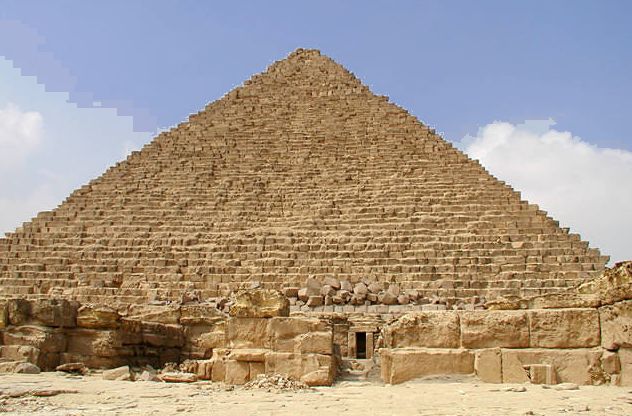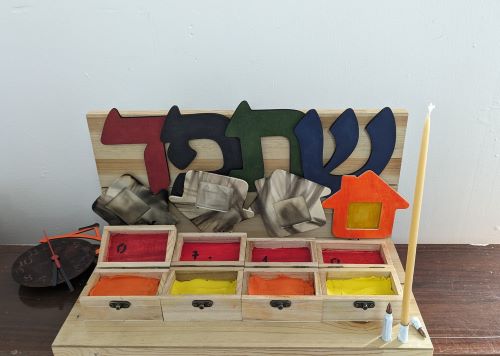In the Depths of Despair: Hostility Beyond the Dungeon Walls
הרב שי טחןיב שבט, תשפד22/01/2024individuals held as hostages in dungeons under likely harsh conditions by the Egyptians should have felt compassion for other victims
תגיות:חרבות ברזלאופטימיותשמחה
Many times, when we read the parasha, (the Torah portion of the week), we get the sense that some things just never change. For example, when examining the wars of Israel in the Tanach, we find that kings and army generals actively participated in battles. Numerous chapters depict how King David personally engaged in wars, rather than staying behind and letting others go into battle. This stands in contrast to other nations where leaders often remain behind to monitor and ensure their safety.
Another observation we make is that, unlike the Jewish people who deeply care for one another, whenever one is suffering, everyone strives to do everything in their abilities to help out the leaders of nations often seem indifferent to the well-being of their people. They are willing to sacrifice everyone in a blink of an eye without hesitation for their agenda. However, this changes when they realize that the danger is imminent and close to them; suddenly, their stance shifts, and they become willing to make concessions.
Jewish people who deeply care for one another, whenever one is suffering, everyone strives to do everything in their abilities to help out the leaders of nations often seem indifferent to the well-being of their people. They are willing to sacrifice everyone in a blink of an eye without hesitation for their agenda. However, this changes when they realize that the danger is imminent and close to them; suddenly, their stance shifts, and they become willing to make concessions.
Look at how Pharaoh is steadfast, not yielding to Moshe's demand to let the people leave Egypt. For the course of nine plagues, he doesn't give in. However, everything changes with the tenth plague—the death of the firstborns. Why is that? It's because it touched him personally. It came close to home when his own firstborn child died in this plague. Suddenly, he rushes in the middle of the night to Moshe Rabbenu and tells him that everyone can leave at once without any conditions.
Applying this concept to our time, we can clearly see how the leaders in Gaza are willing to sacrifice the people. They use them as human shields and don't hesitate to shoot at them if necessary. For instance, if the leaders observe that the people they use as human shields want to leave the area for a safer location or if they wish to benefit from the delivery of food that comes over the border, the militants may interfere and claim the resources for themselves.
Another example is when Hashem punished even the Egyptian’s firstborn of those who were imprisoned or held hostage in dungeons , (The Torah mentions the pit) during the last plague. One might question why Hashem punished them if they didn't personally enslave the Jews. Rashi provides an answer (Shemot 12, 29), stating that although they didn't physically harm the Jews, they rejoiced and took pleasure in witnessing the suffering of the Jewish people.
Consider this: individuals held as hostages in dungeons under likely harsh conditions by the Egyptians should have felt compassion for other victims, especially since the perpetrator is the same – the Egyptians. However, we observe that despite their own difficult circumstances, they still harbored hatred based on the longstanding history against the common adversary, the Jews.
The relevance to our time is striking. Despite the suffering of Gazans under Hamas, there still cheer when Hamas fires rockets and celebrate with sweets when Hamas commits acts of violence against Jews.
While the nature of the enemy may remain constant throughout ancient times, it appears evident that the approach of the Jews has changed, and not necessarily for the better. When the Jews entered the Land of Israel after forty years in the desert, they understood the necessity of eliminating the enemy to conquer and settle the land without interference. However, in modern times, there is an increased emphasis on protecting the human rights of the enemy, even at the expense of putting our soldiers and citizens in harm's way.
Another observation we make is that, unlike the

Look at how Pharaoh is steadfast, not yielding to Moshe's demand to let the people leave Egypt. For the course of nine plagues, he doesn't give in. However, everything changes with the tenth plague—the death of the firstborns. Why is that? It's because it touched him personally. It came close to home when his own firstborn child died in this plague. Suddenly, he rushes in the middle of the night to Moshe Rabbenu and tells him that everyone can leave at once without any conditions.
Applying this concept to our time, we can clearly see how the leaders in Gaza are willing to sacrifice the people. They use them as human shields and don't hesitate to shoot at them if necessary. For instance, if the leaders observe that the people they use as human shields want to leave the area for a safer location or if they wish to benefit from the delivery of food that comes over the border, the militants may interfere and claim the resources for themselves.
Another example is when Hashem punished even the Egyptian’s firstborn of those who were imprisoned or held hostage in dungeons , (The Torah mentions the pit) during the last plague. One might question why Hashem punished them if they didn't personally enslave the Jews. Rashi provides an answer (Shemot 12, 29), stating that although they didn't physically harm the Jews, they rejoiced and took pleasure in witnessing the suffering of the Jewish people.
Consider this: individuals held as hostages in dungeons under likely harsh conditions by the Egyptians should have felt compassion for other victims, especially since the perpetrator is the same – the Egyptians. However, we observe that despite their own difficult circumstances, they still harbored hatred based on the longstanding history against the common adversary, the Jews.
The relevance to our time is striking. Despite the suffering of Gazans under Hamas, there still cheer when Hamas fires rockets and celebrate with sweets when Hamas commits acts of violence against Jews.
While the nature of the enemy may remain constant throughout ancient times, it appears evident that the approach of the Jews has changed, and not necessarily for the better. When the Jews entered the Land of Israel after forty years in the desert, they understood the necessity of eliminating the enemy to conquer and settle the land without interference. However, in modern times, there is an increased emphasis on protecting the human rights of the enemy, even at the expense of putting our soldiers and citizens in harm's way.
הוסף תגובה
עוד מהרב שי טחן
עוד בנושא סיפורי גולשים



.jpg)

